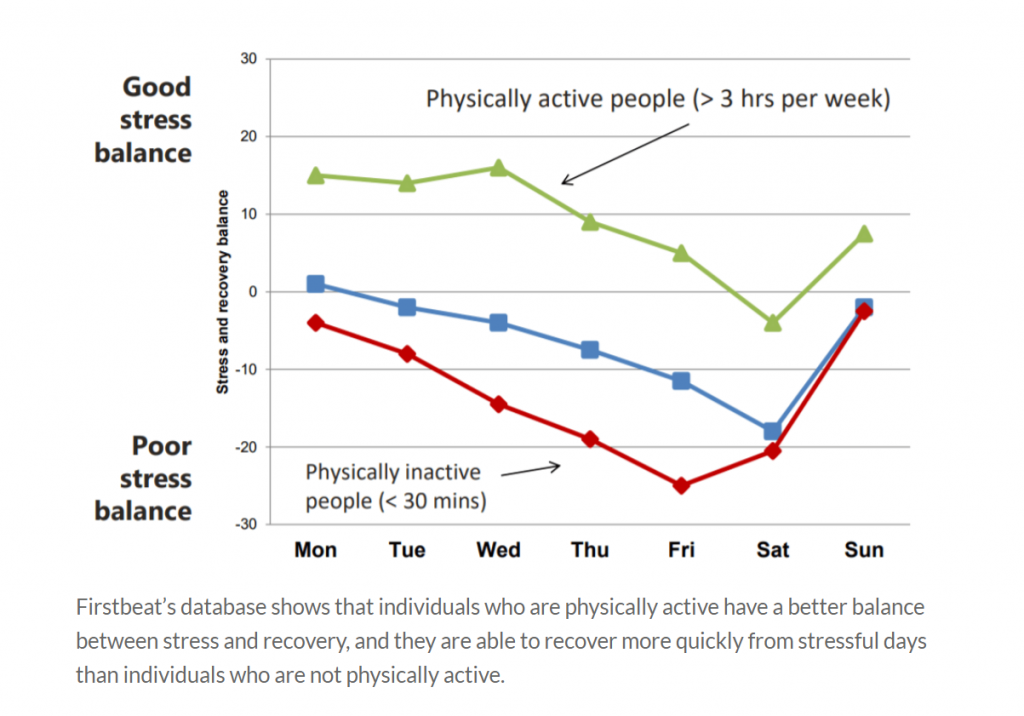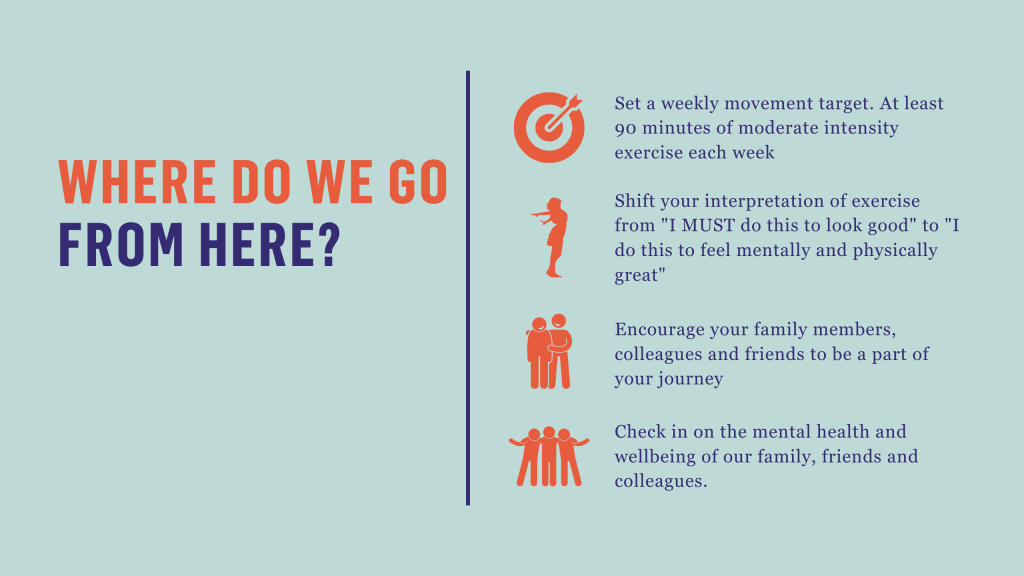Let’s set the scene. 75% of mental health issues occur before the age of 25 and one in six Australians is currently suffering from depression and anxiety. One in six, let that sink in. That means, if you’ve been on a ZOOM call or spoken to a handful of friends in the past 24 hours, at least one of them is suffering. It’s scary. It’s real. However, we have a tool at our disposal that is so powerful it can not just change our outlook on life, but it can foster relationships, build resilience, and inspire people around you. You probably guessed it, exercise.
After reading this, we hope you start to reframe what it means to exercise. Let’s shift the needle from “I must do this to look a certain way” to “I do this because I want to feel mentally and physically great”.
The fitness industry is plagued with preconceived notions of six packs, clean eating, and an endless pursuit of the “perfect body”. It’s a shame, because there are so many other powerful benefits of movement that outweigh these aesthetic goals.


These are just three of the benefits that almost everyone who exercises will experience:
1. Sharper memory and thinking
The same endorphins that make you feel happy and energised also help you concentrate and feel mentally sharp for tasks at hand. When we release these endorphins through exercise, you’ll feel more motivated and focus for longer throughout the day.
2. Fosters a sense of achievement
Regular activity is an investment in your mind, body, and soul. When it becomes a habit, it can foster your sense of self-worth and make you feel strong and more powerful. You’ll naturally start to feel better about your appearance, and, by meeting even small exercise goals, foster a sense of achievement.
3. Stronger resilience
When faced with mental or emotional challenges in life, exercise can help you build resilience and cope in a healthy way. This doesn’t just happen when we put ourselves in uncomfortable physical situations. It happens when you do something as simple as choosing to go for a walk/jog/run when you’re feeling anxious or tired or when you decide to wake up 30 minutes earlier to exercise before work.


So, why is this? What does exercise do for our brains?
When we exercise, the dopamine storage in our brain increases which triggers the creation of dopamine receptors in the “reward centre” of the brain. To strip the neuroscience WAY back, depression can occur when there is a deficit of serotonin, norepinephrine, and dopamine. This deficit can result in feeling fatigued, lacking concentration, feeling low and losing motivation. To help understand this we’ve broken each neurotransmitter down for you:
- Dopamine
Dopamine is the chemical that mediates pleasure in the brain. It is released during pleasurable situations and stimulates you to seek out pleasurable activity or occupation. This is the neurotransmitter that is responsible for addiction.
- Serotonin
Serotonin is the key hormone that stabilizes your mood, feelings of well-being, and happiness. This hormone impacts your entire body. It enables brain cells and other nervous system cells to communicate with each other. The more efficiently our cells can communicate, the better we’ll feel.
- Norepinephrine
Norepinephrine increases alertness and arousal, and speed’s reaction time. Norepinephrine has been shown to play a role in a person’s mood and ability to concentrate. Those who experience depression can often feel sluggish and foggy, this can be linked to low levels of norepinephrine.
The science suggests that a regular exercise routine can bolster these neurotransmitters to not only help prevent depression and anxiety but drastically improve our stress management and focus.


When we exercise, we’re not just working our bodies. Imagine your mind is a muscle, the more we train it, the stronger it gets. Regardless of the type of exercise, the positive impacts of routine, challenging yourself, raising your heart rate and social engagement intertwine to help strengthen our minds for when we face adversity in work and life. If you’re someone in a high pressure job, or you find yourself at the mercy of stressful situations, exercise can be a tool to help manage this and more effectively tackle your hectic personal and professional life
Where do we go from here?
Here are 4 key points to take away.


To finish, when you combine an achievable goal, a sustainable mindset, accountability and a group of people who care about you, join you on the journey and cheer you on – the benefits and opportunities are truly life changing.
If you’re struggling or you know someone who is struggling, one of the greatest things we can do is listen. Too many times has someone opened up only to be shut down with an off the cuff response of “it’s okay, everyone goes through this”. It’s our duty as friends, family members or colleagues to support those around us, to encourage them that it’s okay to be struggling and that you’re there to listen.
If you need support, please call:
Lifeline Australia: 13 11 14
